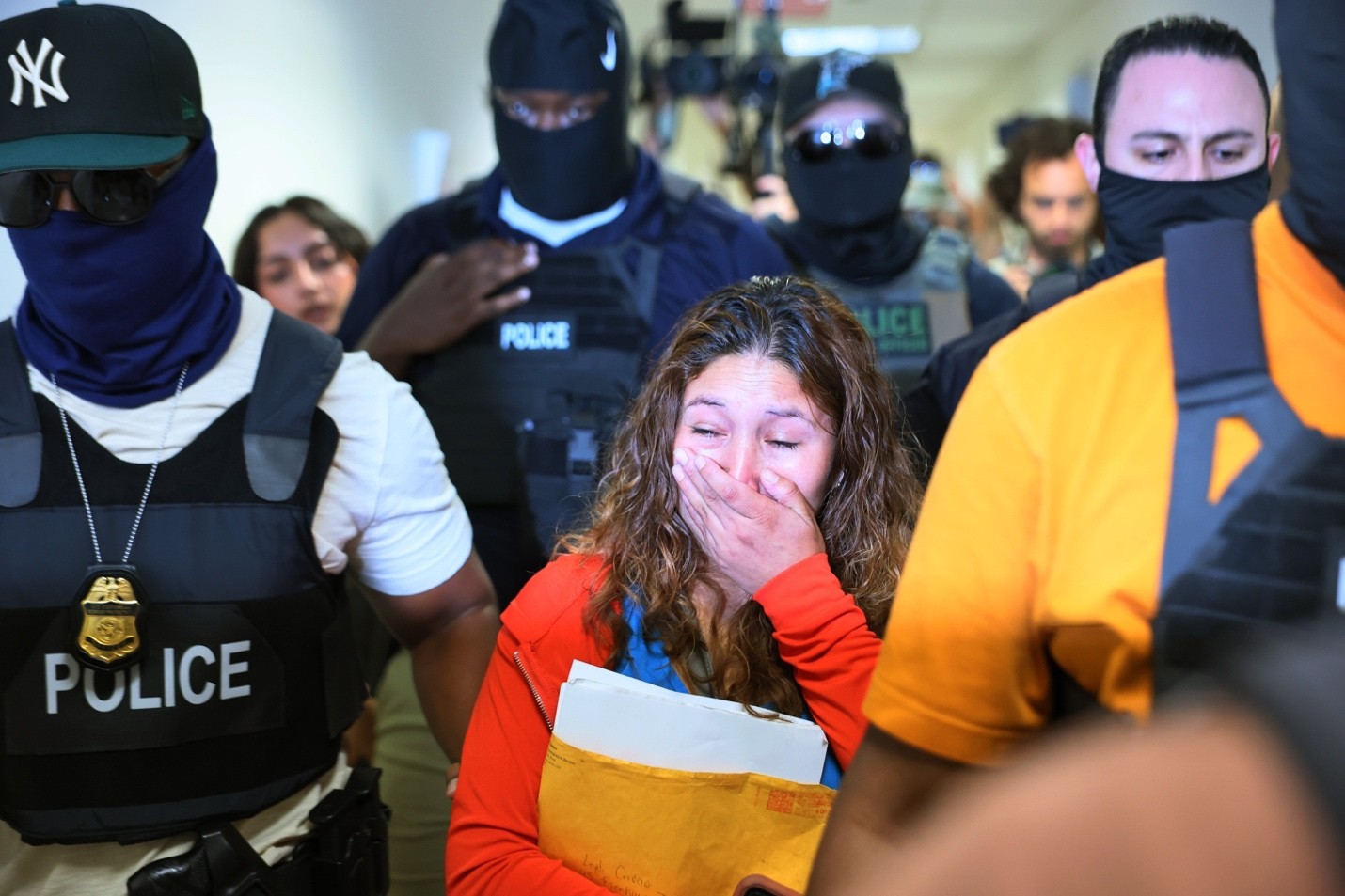In most, if not all, countries around the world, applicants applying for residency, citizenship, and visas are required to pay a fee.[1] There is nothing new or novel about governments charging fees to cover the administrative and processing costs associated with individuals changing lawful status. However, under the current administration in the United States, the U.S. Citizenship and Immigration Services (“USCIS”) has increased fees associated with all immigration applications.[2] With increased fees for visas and citizenship applications, non-profit organizations and state and local governments challenged the recently heightened costs associated with citizenship applications as unconstitutional and illegal.[3]Organizations and municipalities, such as Catholic Charities, and the city of Seattle, Washington, joined together to bring legal action against the new fees as well as the person charged with making the changes, Acting Director of the United States Citizenship and Immigration Services, Ken Cuccinelli.[4] These Plaintiffs argued that the increased fees and limited access to fee waivers creates an unconstitutional wealth-test for citizenship.[5]
On October 24, 2019, as part of a proposed fee schedule change, the United States Citizenship and Immigration Services (“USCIS”) released the revised Form I-912 Fee Waiver Request, which eliminates the means-tested benefits as a basis for requesting a fee waiver.[6] Means-tested benefits are “benefits offered by government agencies in which an applicant’s eligibility depends upon income, resources, or financial need of the individual, household, or family unit seeking the benefit.”[7] Means-tested benefits are funded through government entitlement programs. An entitlement is a “legal obligation of the federal government to make payments to a person, group of people, business, unit of government, or similar entity that meets the eligibility criteria set in law.”[8] Spending levels for entitlement programs are determined by those programs’ eligibility criteria and benefit or payment rules rather than through the annual appropriations process.[9] These changes were scheduled to take effect on December 2, 2019.[10] The policy was challenged in several federal courts across the nation, leading to nationwide injunctions.[11] This article will focus on the potential ramifications associated with the government’s elimination of the means-tested benefits as a basis for requesting a fee waiver and fee increases when applying for family-based status in the United States.
The Department of Homeland Security (“DHS”) proposed to adjust the USCIS fee schedule, which specifies the fee amount to be charged for each immigration and naturalization benefit request.[12] In its reasoning for the fee increases, DHS cited a biennial fee review, which showed shortfalls among what it takes to administer and process applications versus what USCIS receives.[13] The results of the biennial fee review indicated that previous fee levels were insufficient to recover the full cost of operations funded by the Immigration Examinations Fee Account (“IEFA”).[14] The review further showed that if USCIS continues to operate at its current fee levels, it would experience an average annual shortfall of roughly $1.2 million dollars.[15] According to DHS, the proposed fee increase would ensure two priorities—that USCIS recovers its full operating costs, and maintains an adequate level of service.[16] DHS states that the higher fees account for the increased costs associated with immigration benefit requests, and include costs to detect and deter immigration fraud, while thoroughly vetting applicants, petitioners, and beneficiaries.[17] DHS projects the adjustments to USCIS’s fees are only a weighted average increase of 21%.[18] Included in the 21% increase are new fees for certain benefit requests, such as the $525 application fee for work authorization applications.[19] Previously, there was not a fee associated with the work authorization form.
Traditionally, applicants who received a means-tested government benefit, such as Supplemental Nutrition Assistance Program (“SNAP”), Federally-Assisted Housing through HUD, Children’s Health Insurance Program (“CHIP”), or Medicaid, automatically qualified for a waiver of the filing and biometrics fee for naturalization, which totaled $725.[20] At the time of this writing, the current fee to file form N-400 for citizenship is $640 and an accompanying biometric fee of $85 puts the total at $725. The new proposed fee for the N-400 would be $1,170, an 80% increase in the cost of one form.[21] Currently, USCIS plans to eliminate the waiver and simultaneously raise the fee.[22]DHS last adjusted the fee schedule on December 23, 2016.[23] Following the 2016 changes, in the fiscal years 2017 and 2018, the total waiver amount dropped from $367.9 million to $293.5 million, according to USCIS.[24] Before 2016, the fee schedule had not been changed since 2010.[25]
Opponents of the changes argued that the new rules will disproportionately affect non-wealthy applicants, creating two avenues toward citizenship; where one avenue is open to anyone with the financial means who can afford citizenship, and the second avenue is for income challenged individuals who would be facing more barriers. In an interview with Fortune Magazine, Diego Iñiguez-López, policy and campaigns manager for National Partnership for New Americans, said that the elimination of the means-tested benefits is a “direct attack on the values of opportunity, fairness, and impartiality in how USCIS adjudicates benefits.”[26] Diego Iñiguez-López’s organization is one of Plaintiffs who brought suit against the Trump administration regarding Cuccinelli’s actions since taking over the USCIS agency in June 2019. The Complaint, with 13 named Plaintiff States, was filed in the United States District Court for the Southern District of New York, and alleged that Cuccinelli’s appointment as Acting Director of USCIS violates federal law.[27] Since the appointment of Cuccinelli was improper, rules and directives under him should be invalid, including a new rule on application fee waivers for naturalization, the suit alleges.[28] Jenny Durkan, the Mayor of Seattle, released a statement emphasizing that “wealth is not and should never be a requirement of being an American citizen. Seattle will fight for the promise of America and against a pay-to-play approach to citizenship.”[29]
Cuccinelli insists that the new rules and fee schedule of USCIS “will improve the integrity of the program and the quality and consistency of fee waiver approvals going forward, and provide clear direction and a more uniform process to the agency allowing the office to uphold our mission efficiently and fairly.”[30] USCIS came to the conclusion that receiving a means-based benefit is not necessary in reviewing fee-waiver requests because “income levels used to decide local assistance eligibility vary greatly from state to state.”[31] However, USCIS has not offered information regarding the variances it references in deciding to drop the means-based benefit waiver. It is also worth noting that the fee schedule has increases planned across all areas of immigration applications, not just those for needs-based family immigrants.[32]Opponents counter that, the fee increases for other visas such as the H-1B—the visa that allows U.S. employers to temporarily employ foreign workers in specialty occupations—is not comparable to the increases in cost and elimination of citizenship application fees since companies who sponsor H-1B visas are in better financial situations to absorb the cost associated with business visas.[33]
As it stands now, the ensuing lawsuit challenging USCIS’s director, new rules, and schedule of fees has many waiting to see which way the highest court in the land leans, with both sides anticipating grant of certiorari by the United States Supreme Court on the merits of the case. USCIS has already released the revised version of the I-912 Fee Waiver Request Form. To accommodate applicants already in the process of applying for citizenship who are requesting a fee-waiver, older versions of the I-912 were accepted until December 1, 2019. After this point, USCIS will only accept the newest version of the form.[34] Attorneys urged their clients to get their applications in to prepare for the changes slated to take effect in December 2019. The Plaintiffs were hoping to provide remedy to thousands of applicants when they sought an injunction to halt the end of the means-benefit test while the case is litigated.[35]
Applicants applying for citizenship can only wait and hope for a positive outcome as this case joins a long line of cases being litigated against the Trump administration over policies USCIS has tried to implement within the past few years.[36] The silver lining for those in limbo is that other challenges to policies USCIS tried to implement, such as requiring immigrants to prove they can afford health insurance and denying green card applicants on government assistance, have previously been blocked as they make their way through the Courts.[37] If the blockages were an indication of how the Courts will ultimately rule, then applicants from varying socio-economic backgrounds should expect to receive some form of relief. For businesses, the relief may be nominal, for families the relief may be substantial; regardless, the relief is sure to be welcomed by all affected applicants.
As of January 27, 2020, in a 5-4 decision in the case of Department of Homeland Security v. New York, the United States Supreme Court ruled in favor of the Trump Administration and DHS.[38] The ruling stays previous nationwide injunctions imposed by U.S. District Judges. In its decision to stay the New York injunction, imposed by New York District Judge George B. Daniels, the Supreme Court held that “the District Court’s October 11, 2019 orders granting a preliminary injunction are ‘stayed pending disposition of the Government’s appeal in the United States Court of Appeals for the Second Circuit and disposition of the Government’s petition for a writ of certiorari, if such writ is timely sought.’”[39] At the time of this writing, the Second Circuit case is still pending, which challenges the merits of the larger legal issue—means-tested benefits being used as a disqualifying factor for lawful residency status in the United States—as unconstitutional. The Trump administration is declaring the Supreme Court’s decision to stay the injunctions is a victory.[40] Justice Gorsuch, in his concurring opinion, makes it clear that this case is far from over and may possibly be back before the highest court in the land soon.[41]
[1] Global Residence Index. https://globalresidenceindex.com/hnwi-index/passport-index/.
[2] U.S. Citizenship and Immigration Services Fee Schedule 81 Fed. Reg. 73,292 (Oct. 24, 2016).https://www.federalregister.gov/documents/2016/10/24/2016-25328/us-citizenship-and-immigration-services-fee-schedule.
[3] Make the Road New York et al. v. Cuccinelli et al., No. 1:2019cv07993 (S.D.N.Y. 2019).
[4] Id.
[5] Id.
[6] Form I-912, https://www.uscis.gov/i-912.
[7] LIHEAP IM 97-25 Guidance on “Federal Means-Tested Public Benefits” Under the Welfare Reform Law. 62 Fed. Reg. 45256. https://www.acf.hhs.gov/ocs/resource/guidance-on-federal-means-tested-public-benefits?page=all.
[8] House Committee on the Budget. https://budget.house.gov/publications/report/what-you-need-know-about-means-tested-entitlements.
[9] Id.
[10] Id. at 4.
[11] New York, et al. v. Dept. of Homeland Security, et al., No. 1:2019cv07777 (S.D.N.Y. 2019), https://dockets.justia.com/docket/new-york/nysdce/1:2019cv07777/521356; California, et al. v. Dept. of Homeland Security, et al., No: 4:19-cv-04975-PJH (N.D. Cal. 2019), https://oag.ca.gov/system/files/attachments/press-docs/120%20Order%20re%20PI.pdf; Washington et al. v. Dept of Homeland Security, et al., No. 4:19-cv-05210-RMP (E.D. Wash. 2019), https://agportal-s3bucket.s3.amazonaws.com/uploadedfiles/Another/News/Press_Releases/publicchargePI.pdf.
[12] Id. at 3.
[13] Id.
[14] Id.
[15] Id.
[16] Id.
[17] Id.
[18] Id.
[19] Id.
[20] Id.
[21] Id.
[22] Id.
[23] Id.
[24] Id.
[25] Id.
[26] Tovin Lapan, New Rule Limiting U.S. Citizenship Application Fee Waivers Challenged in Federal Lawsuit, Fortune Magazine, (2019).
[27] Id.
[28] Id.
[29] Id.
[30] Farida Jhabvala Romero, Fee Waivers for Citizenship Applications Harder to Get Under New Rule, California Report, KQED News (2019). https://www.kqed.org/news/11782917/fee-waivers-for-citizenship-applications-harder-to-get-under-new-rule.
[31] Id.
[32] Id.
[33] Id. at 24.
[34] Id. at 3.
[35] Id. at 4.
[36] Id. at 24.
[37] Id. at 4.
[38]19A785 Department of Homeland Security v. New York, 589 U. S. ____ (2020). https://www.scotusblog.com/wp-content/uploads/2020/01/19A785-1.pdf.
[39] Id.
[40] Id.
[41] Id.


